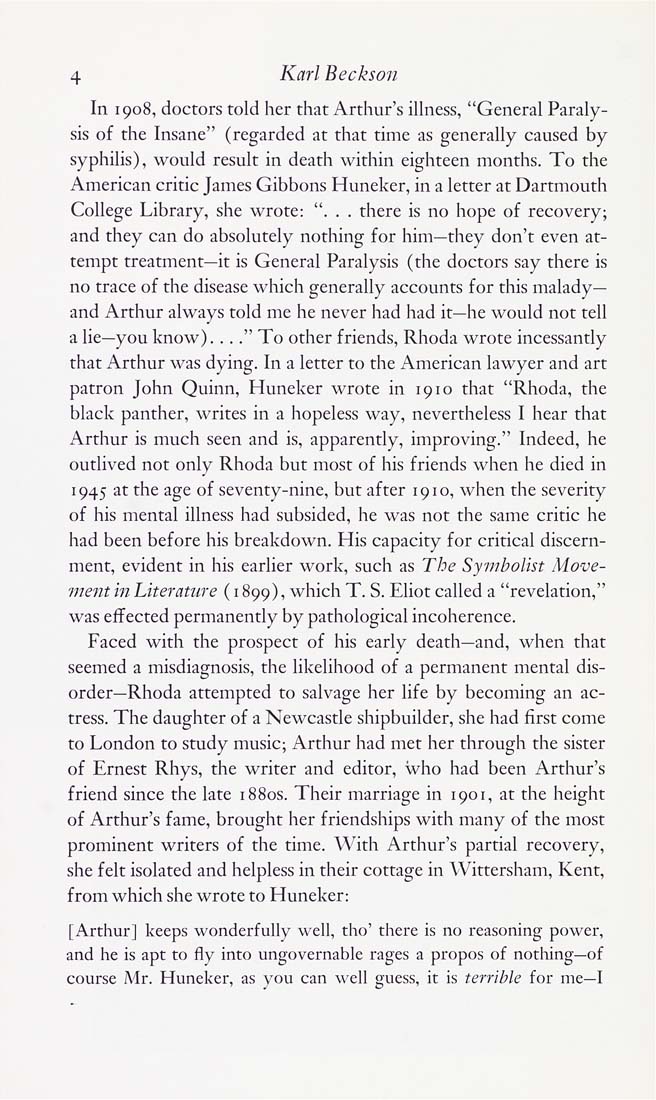Columbia Library columns (v.33(1983Nov-1984May))
(New York : Friends of the Columbia Libraries. )
|
||
|
|
|
|
| v.33,no.1(1983:Nov): Page 4 |

4 Karl Beckson In 1908, doctors told her that Arthur's illness, "General Paraly¬ sis of the Insane" (regarded at that time as generally caused by syphilis), would result in death within eighteen months. To the American critic James Gibbons Huneker, in a letter at Dartmouth College Library, she wrote: ". . . there is no hope of recovery; and they can do absolutely nothing for him—they don't even at¬ tempt treatment—it is General Paralysis (the doctors say there is no trace of the disease which generally accounts for this malady— and Arthur always told me he never had had it—he would not tell a lie—you know). .. ." To other friends, Rhoda wrote incessantly that Arthur was dying. In a letter to the American lawyer and art patron John Quinn, Huneker wrote in 1910 that "Rhoda, the black panther, writes in a hopeless way, nevertheless I hear that Arthur is much seen and is, apparently, improving." Indeed, he outlived not only Rhoda but most of his friends when he died in 1945 at the age of seventy-nine, but after 1910, when the severity of his mental illness had subsided, he was not the same critic he had been before his breakdown. His capacity for critical discern¬ ment, evident in his earlier work, such as The Symbolist Move¬ ment in Literature (1899), which T. S. Eliot called a "revelation," was effected permanently by pathological incoherence. Faced with the prospect of his early death—and, when that seemed a misdiagnosis, the likelihood of a permanent mental dis¬ order—Rhoda attempted to salvage her life by becoming an ac¬ tress. The daughter of a Newcastle shipbuilder, she had first come to London to study music; Arthur had met her through the sister of Ernest Rhys, the writer and editor, who had been Arthur's friend since the late 1880s. Their marriage in 1901, at the height of Arthur's fame, brought her friendships with many of the most prominent writers of the time. With Arthur's partial recovery, she felt isolated and helpless in their cottage in Wittershani, Kent, from which she wrote to Huneker: [Arthur] keeps wonderfully well, tho' there is no reasoning power, and he is apt to fly into ungovernable rages a propos of nothing—of course Mr. Huneker, as you can well guess, it is terrible for me—I |
| v.33,no.1(1983:Nov): Page 4 |







